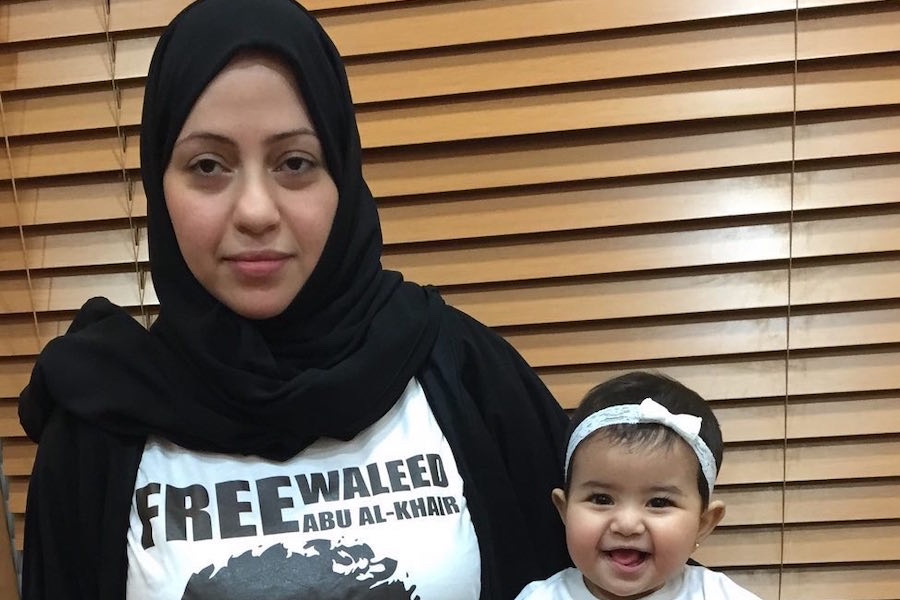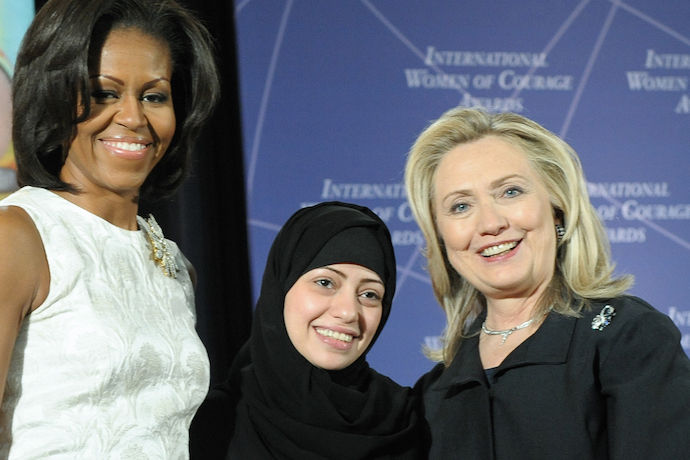
Equality Reserved: Saudi Arabia and the Convention to End All Discrimination against Women
Saudi Crown Prince Mohammed bin Salman’s much-heralded liberalization drive came to a gruesome end with the torture, murder, and dismemberment of Saudi journalist Jamal Khashoggi. The murder was not only meant to silence the journalist but also to send a chilling message to all Saudi activists who had fled abroad.
As part of the Prince Salman’s Vision 2030 Project, a number of reforms were proposed including opening public cinemas for the first time since the 1980s, lifting a ban on music concerts and announcing plans to allow women into sports stadiums. The centerpiece of these reforms came on June 24, 2018, when women were granted the right to drive. International observers hailed this as a major step towards gender equality in the Kingdom of Saudi Arabia. However, despite overturning the decades-old edict prohibiting women from driving, the status of women in the country remains one of the worst in the world, ranking 138 out of 144 countries according to the 2017 Global Gender Gap Index.
Saudi Arabia’s most serious restrictions on the rights of women are in the areas of freedom of movement, health, education, equality before the law and in marriage. The state controls what women wear, whom they may associate with and which public spaces they are allowed to enjoy. These restrictions are enforced in various degrees across the country by the religious police. Although authorities imposed some reforms to curb the power of the religious police, they have not been disbanded and their intimidating presence on Saudi streets remains.
Most troubling is the fact that shortly after women took to the roads exercising their new-found freedom, authorities arrested a number of women’s rights activists for speaking out against the oppression of women in the Kingdom. According to Aljazeera, Saudi Arabia’s public prosecutor is seeking the death penalty for five of the activists. Human Rights Watch reported that the charges against the activists are not actual crimes and include “incitement to protest,” “chanting slogans hostile to the regime” and “providing moral support to rioters.” Such “crimes” are clearly the pretext for suppressing voices which threaten.
The most prominent activist, Samar Badawi, was arrested in August. Badawi, a recipient of the U.S. State Department 2012 International Women of Courage Award, was the first woman to sue her father for using the Saudi’s guardianship system to prevent her from marrying the husband of her choice and the first woman to file a lawsuit against the government demanding the right for women to vote.
Amnesty International condemned the arrest of women rights advocates in a November 2018 report, stating: “[d]espite the Saudi authorities’ repeated attempts to project the image of a country implementing sweeping reforms to ‘modernize’ the kingdom, the grim reality is of continuing arrests of activists for their peaceful human rights work.” Human Rights Watch has reported that the activists are being held in solitary confinement and have endured sexual assault and repeated torture by electrocution and flogging. This mistreatment has left some of the women unable to walk, with one activist reportedly attempting suicide as a result of her ordeal.
The Guardianship System
According to Human Rights Watch, the gravest threat to the freedom of Saudi women is its guardianship system, which places women under the control of a male relative for their entire lives. The system mandates that all women in the Kingdom must have a male “wali” (official guardian), who is usually their father, brother, uncle or husband.
Although guardianship is not actually codified Saudi law, it is an essential part of Saudi custom and tradition with government officials, courts, businesses and individual Saudis acting in accordance with it, thus giving men near absolute control over the public and private lives of Saudi women. For example, authorization from a male guardian is necessary in order for women to travel internationally, access health care services, choose residency, marry, file complaints in the justice system and to access state-run shelters for abused women. It is, therefore, virtually impossible for victims of domestic violence or sexual abuse to obtain legal redress because filing a complaint with the police is subject to the approval of her guardian, who may actually be the perpetrator of the violence.

Some modifications were made to the guardianship system in 2017 when King Salman issued an order specifying that women did not need permission from their male guardian for some activities, including entering a university, taking a job or undergoing surgery. The reality, however, for most Saudi women is that they remain firmly under the control of a male relative with respect to the most basic rights enshrined under international law, such as the Universal Declaration on Human Rights which Saudi Arabia is bound to follow as a member of the United Nations.
Convention for the Elimination on all Forms of Discrimination against Women
Saudi Arabia ratified the UN Convention on the Elimination of all Forms of Discrimination against Women (CEDAW) in 2001. The Convention obligates Saudi Arabia “to pursue by all appropriate means and without delay a policy of eliminating discrimination against women” including “any distinction, exclusion or restriction made on the basis of sex which has the purpose of impairing or nullifying the recognition, enjoyment or exercise by women…of human rights and fundamental freedoms in the political, economic, social, cultural, civil or any other field.” However, when it adopted the Convention, Saudi Arabia made a general reservation to the treaty: “[i]n case of contradiction between any term of the Convention and the norms of Islamic law, the kingdom is not under obligation to observe the contradictory terms of the Convention.” Most human rights advocates believe Saudi’s reservation to be illegal, as it grants the Kingdom discretion to pick and choose which parts of the treaty it wishes to follow and parts of the treaty it believes are in conflict with its interpretation of Islamic Law.
International law provides that treaty reservations which are incompatible with the “object and purpose of a treaty” are illegal because they render basic human rights obligations meaningless. Saudi’s reservation clearly violates the object and purpose of CEDAW because it enables the Kingdom to ignore virtually any obligation under the treaty that it deems contradictory of a “norm” of Islamic law, including a continuation of Saudi’s guardianship system; the lynchpin of its discriminatory policies towards women.
Freedom of Movement
Article 15(4) of CEDAW obliges states to accord to women the same rights with regard to the laws relating to the movement of people and the freedom to choose where they live. Saudi women’s right to movement is subject to the control of their guardian. They cannot, for example, travel abroad without a male’s permission. And Saudi authorities will go to great lengths to prevent women from fleeing their guardian’s control. For example, on January 6, 2018, a Saudi woman who fled Saudi Arabia without her father’s consent, had her passport taken away at Bangkok airport by officials from the Saudi Embassy. Without proper documentation, Thai officials were left with little choice but to allow for the woman’s repatriation back to Saudi Arabia. In a similar case, in April 2017, another Saudi woman was stopped in transit in the Philippines when she attempted to flee her family. Witnesses said that the women, who was 24 at the time, was heard screaming and begging for help as men bound her in duct tape and carried her off at the airport.
In addition to restrictions on international travel, a woman’s access to public transportation in the Kingdom is very limited and where allowed, they must use a separate entrance and sit at the back in a section reserved for women.
Right to Employment
In Saudi Arabia, a women’s guardian controls whether she may work and has the power to suspend her employment at any time, for any reason. This violates Article 11 of CEDAW, which stipulates that States Parties shall take all appropriate measures to eliminate discrimination against women in the field of employment. Notably, although Saudi women make up 70% of those enrolled in universities, they make up only 5% of Saudi’s workforce. This is the lowest proportion in the world.
Freedom in Marriage and Family Matters
CEDAW also obliges states to take measures to eliminate discrimination against women in all matters relating to marriage and family matters. In particular, states are required to grant women the right to enter into marriage only with their free and full consent. Saudi Arabia violates this fundamental right when it allows legal guardians to withhold consent for marriages or even to dissolve marriages they deem unfit.
Additionally, only men have guardianship over children. By denying women this right over their children, Saudi Arabia is also violating article 16(f) of CEDAW, which provides men and women the same rights with respect to guardianship, wardship, trusteeship and the adoption of children.
The Social and Cultural Norms Defence
In March 2018, the Committee on CEDAW released its report on the status of women in Saudi Arabia. The report acknowledged some positive changes implemented by the Kingdom, namely allowing women to access government services without a male guardian’s permission. However, the Commission strongly criticized the continued maintenance of the guardianship system, stressing that it limits women’s access to the majority of rights and guarantees provided by CEDAW.
Saudi Arabia justifies its discriminatory policies against women on the basis of its interpretation of Islam which comes from Wahhabism, a strict form of Sunni Islam that is heavily influenced by Saudi custom and tradition. Further, conservative Saudi clerics decried criticism as the West trying to impose its values on the Kingdom. Saudi’s defense, however, is not supported by CEDAW’s mandate which identifies social and cultural norms as the source of many cases of abuse of the rights of women and thus, obliges governments to take measures to address such abuses. Article 5(a) of the Convention mandates states “modify the social and cultural patterns of conduct of men and women, with a view to achieving the elimination of prejudices and customary and all other practices which are based on the idea of the inferiority or the superiority of either of the sexes or on stereotyped roles for men and women.” Despite CEDAW’s obligation to change tradition and customs, the Kingdom has only made small changes to its patriarchal system of control over Saudi women.
Saudi Arabia falsely defends the continuation of the guardianship system claiming it is integral to the maintenance of Sharia law in the Kingdom. However, the CEDAW Commission noted the wide range of opinions and jurisprudence with respect to Islamic law and it encouraged Saudi Arabia to consider the practice of other States that have been successful in reconciling fundamental rights with Islamic texts.
In order to honor its international human rights obligations, Saudi Arabia must immediately and unconditionally release the women detained for advocating gender equality in the Kingdom. It must also immediately implement the recommendations of the CEDAW Commission and amend its domestic laws in order to bring the country into compliance with its obligations under CEDAW. First and foremost, Saudi Arabia must end its guardianship system, called a system of “abuse” by imprisoned, feminist, blogger, Eman al Nafjan.
